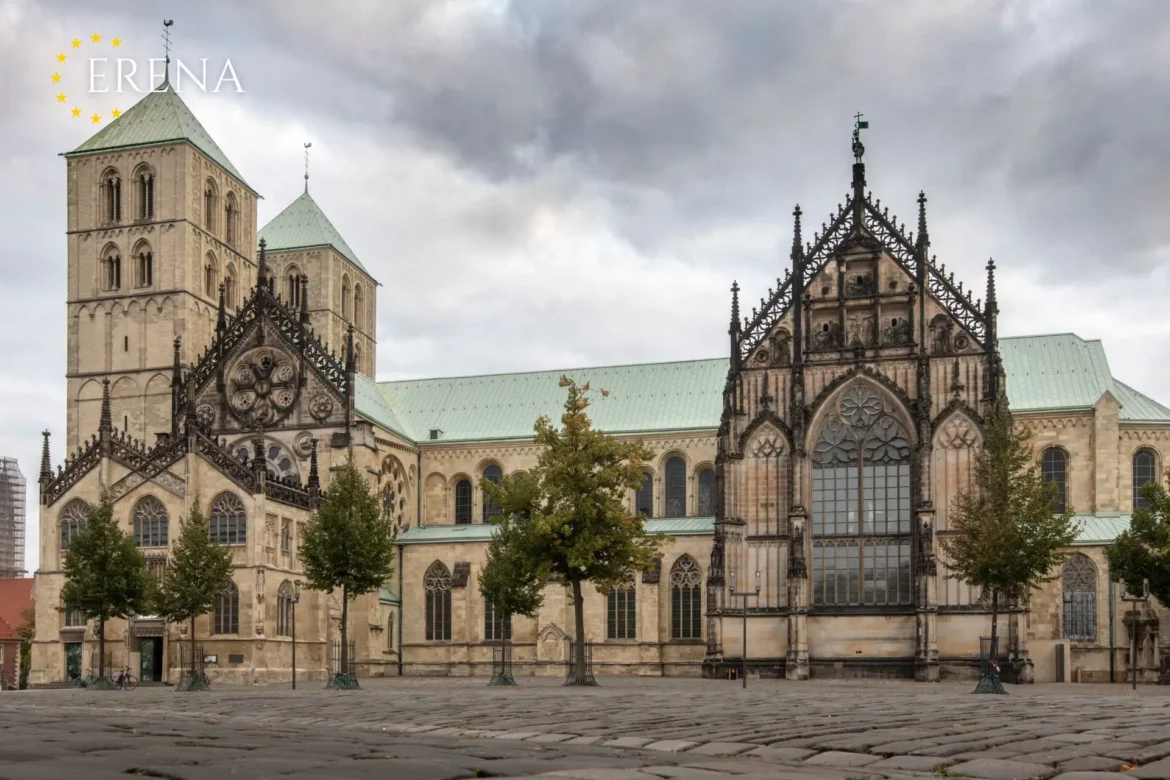In recent years, North Rhine-Westphalia (NRW) has implemented new building regulations aimed at enhancing energy efficiency, sustainability, and safety standards. While these changes are designed to improve construction quality and promote eco-friendly housing, they also lead to increased costs for developers, ultimately impacting property prices.
Key Aspects of the New Building Regulations:
• Energy Efficiency: New buildings are required to meet stricter standards for thermal insulation, utilize renewable energy sources, and minimize CO₂ emissions. This necessitates the use of innovative technologies and modern construction materials, increasing construction costs. For instance, starting from January 2025, new residential buildings in NRW must be equipped with solar panels covering at least 30% of the roof area.
• Safety and Resilience: Enhanced requirements have been established for fire safety, sound insulation, and building resilience, especially in flood-prone areas. Compliance with these standards demands additional investments in construction projects.
• Accessibility for People with Disabilities: New buildings must now be designed to accommodate individuals with limited mobility, including mandatory installations of ramps and elevators. These measures contribute to higher design and construction expenses.
• Environmental Considerations and Building Density: There are new mandates for greening spaces, utilizing environmentally friendly materials, and reducing building density. These constraints limit developers’ options and increase the cost per square meter.
Increase in Construction Costs:
The integration of new construction technologies and energy-efficient materials leads to increased expenses. For instance, high-performance thermal insulation systems, low-thermal-conductivity windows, and solar panels significantly raise construction costs. According to the German Builders Association, prices for construction materials have risen by more than 30% over the past five years, a trend that continues with the new requirements.
Adhering to the new standards necessitates meticulous project documentation, leading to higher costs for architectural and engineering design. Additionally, buildings must comply with energy efficiency requirements and obtain relevant certifications, which also incur additional expenses.
The implementation of new building standards increases the complexity of construction work, thereby extending project timelines. Developers are compelled to engage more specialists and employ more sophisticated methods, further escalating project costs.
Rise in Property Prices:
The rise in construction expenses inevitably leads to higher residential property prices. Experts estimate that the new building regulations have contributed to a 15–20% increase in the cost per square meter of housing in NRW compared to previous years.
Due to escalating property prices, many residents, particularly young families and middle-class individuals, face challenges in purchasing homes. This situation is exacerbated by rising mortgage rates and stricter lending conditions, making it even more difficult to acquire apartments or houses.
Some developers are abandoning new projects due to high costs and decreased demand. This leads to a reduction in market supply, which may further drive up property prices.
Increase in Rental Rates:
As homeownership becomes less attainable, more residents are turning to rental options. This shift increases demand for rental properties, subsequently driving up rental rates. In cities like Düsseldorf, Cologne, and Dortmund, rents have already risen by 10–15% in recent years.
Market Stakeholder Responses:
To minimize costs, developers are shifting towards more compact projects, utilizing alternative materials, and implementing modular construction technologies. While these strategies can slightly reduce project costs, they do not fully address the overarching issue of rising expenses.
The NRW authorities offer various subsidies and tax incentives to developers who comply with the new energy efficiency standards. However, experts note that these measures are currently insufficient to fully offset the rising costs.
In response to increasing housing costs, there is a growing interest in cooperative housing, micro-apartments, and other forms of collective property ownership. While these options can alleviate financial burdens, they do not comprehensively resolve the broader issue of housing affordability.
Forecast and Potential Solutions:
In the coming years, the NRW real estate market is expected to continue adapting to these new conditions, with further increases in construction costs and, consequently, property prices. To prevent a critical decline in housing affordability, the following measures are necessary:
• Develop additional support mechanisms for developers and buyers, including tax incentives and subsidies.
• Simplify bureaucratic procedures for obtaining construction permits.
• Implement innovative technologies that reduce construction costs without compromising quality.
Without additional government intervention, the issue of affordable housing in the region may become even more pressing in the future.
The new building regulations in North Rhine-Westphalia aim to enhance the quality and energy efficiency of buildings but have significantly increased construction costs. This escalation leads to higher housing prices, reduced affordability, and rising rental rates. Mitigating these negative effects requires government intervention and the development of alternative construction methods. Otherwise, housing in NRW will become even less accessible to a broad segment of the population.
How New Building Regulations in North Rhine-Westphalia Affect Prices
679
previous post

